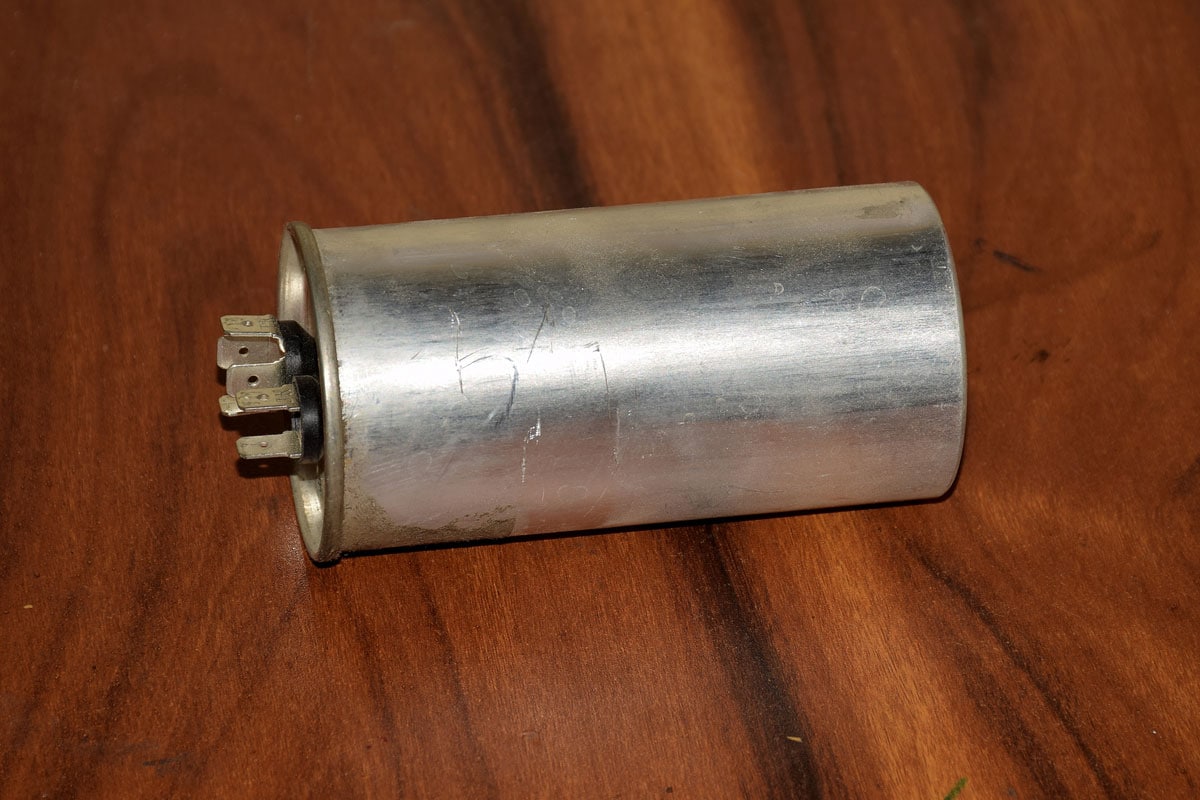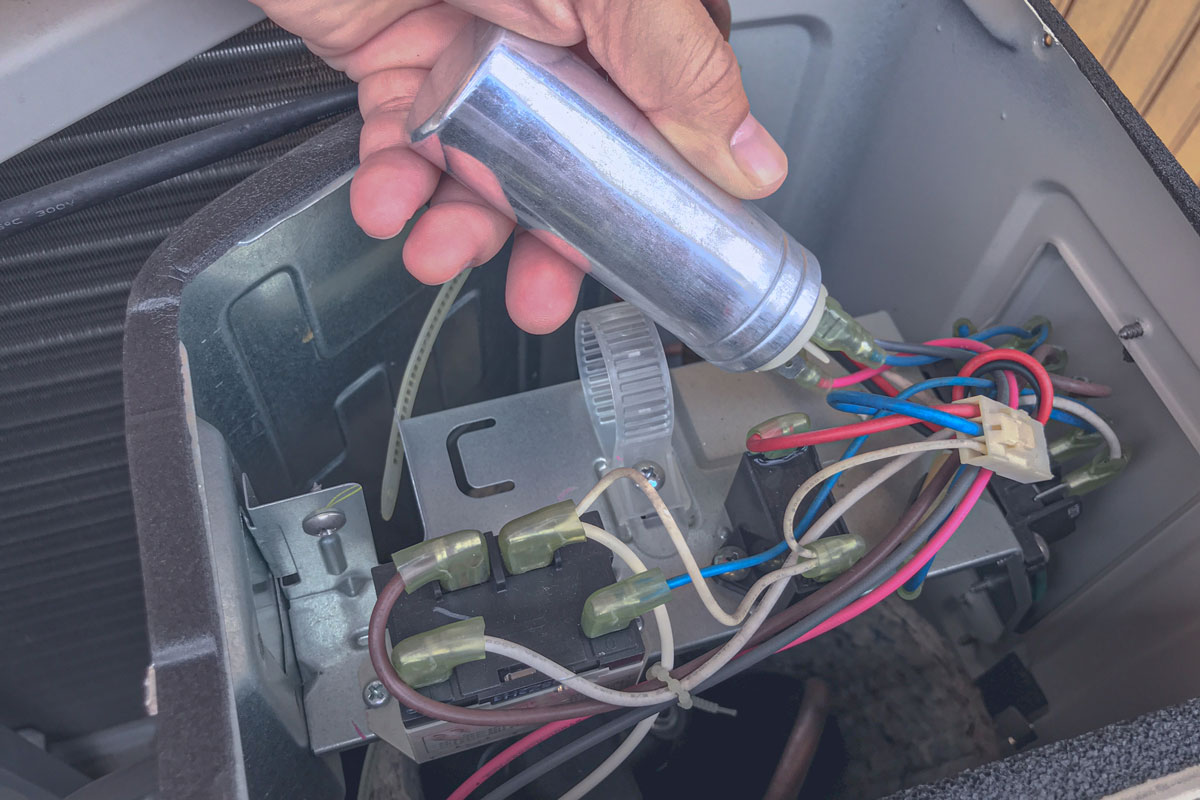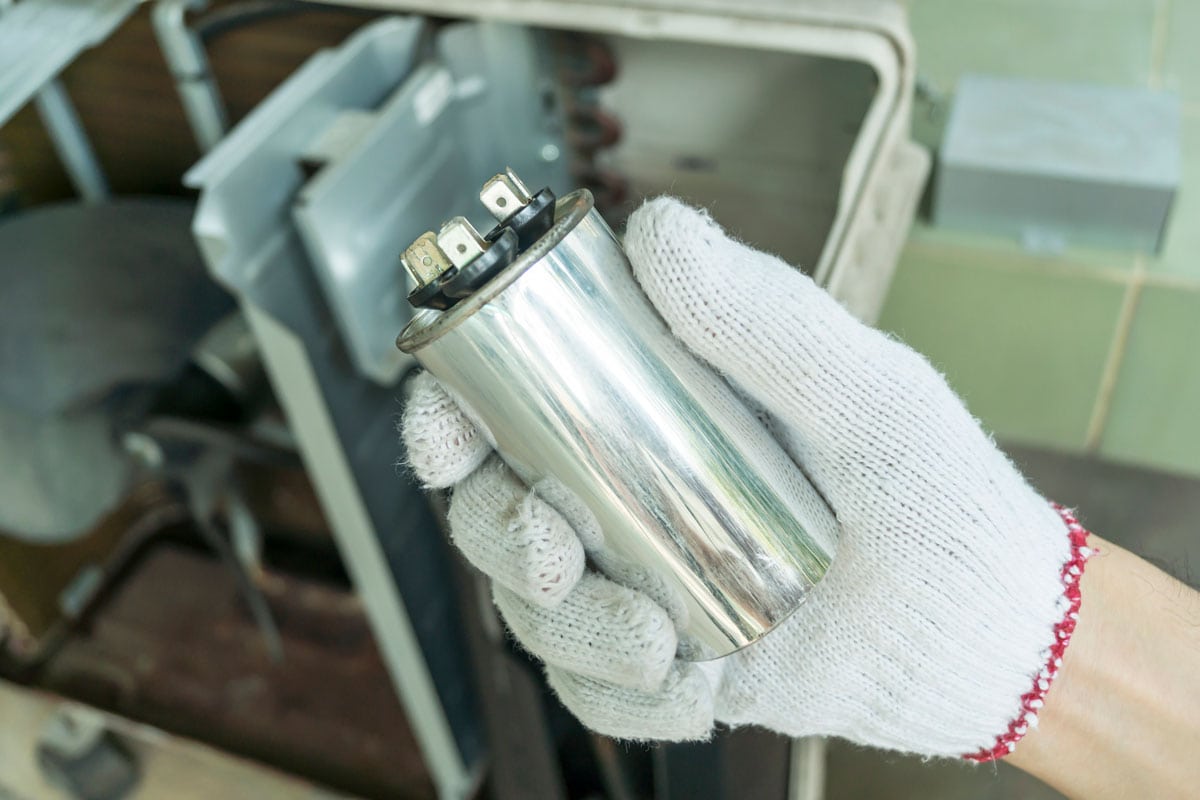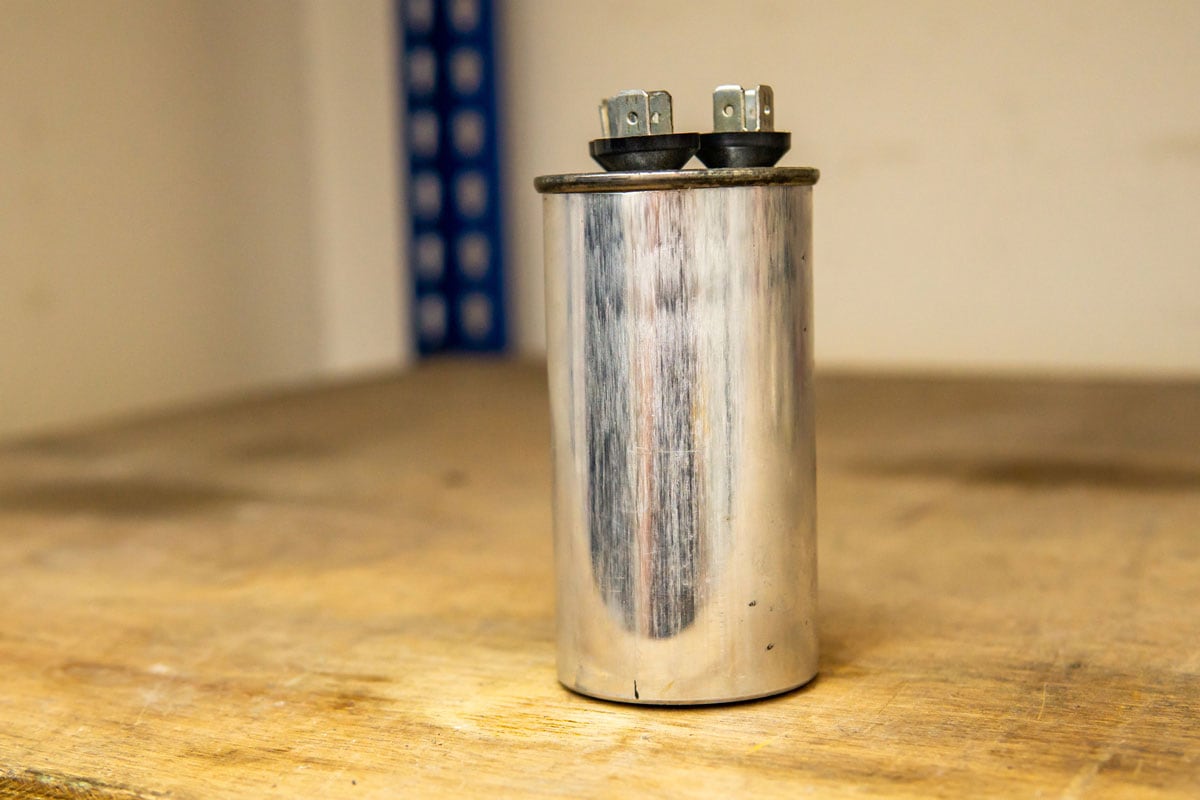An air conditioner capacitor will eventually become damaged; thus, a replacement is necessary to keep functioning correctly. However, you must ensure you'll buy the right AC capacitor before replacing it.
Now you might wonder how to buy an air conditioner capacitor. Wonder no more: we've got your back here on this article; see for yourself the answer below!
You can generally call your HVAC dealer to find the correct capacitor or see your manual for capacitor size requirements.
If you have already removed the broken capacitor from the motor, you can check its label. You can see its capacity details and identify the correct size capacitor you need to buy.
You'll have to note the AC's motor unit number found in its casing if it's not visible. Go to your nearest HVAC store and show your note to identify what correct capacitor you may need.
Ensuring you buy the correct air conditioner capacitor will determine how effectively rerun your AC. By the end of this article, you'll surely know what other types of air conditioner capacitors are available today.
We'll also address what causes your capacitor to fail and how you replace them. So continue reading!
![Air conditioner outdoor unit compressor capacitor motor, How To Buy The Correct AC Capacitor [Things You Need To Know!]](https://hvacseer.com/wp-content/uploads/2022/08/11How-To-Buy-The-Correct-AC-Capacitor-Things-You-Need-To-Know.png)
How Do You Know What Size AC Capacitor You Need?
A broken compressor capacitor is pretty frustrating, especially on hot summer days. Fixing this issue should be your priority to avoid damaging the other parts of your air conditioner.
Though sometimes, making sure you have the right size capacitor is quite a challenge. Luckily, there are methods to figure out the correct capacitor for your compressor.
In addition to asking your HVAC installer, you can also look at the size of the capacitor itself. You might not know this, but most air conditioner capacitors' body size is relative to their voltage value.

How Many Types Of Capacitors Are There?
Capacitors are a vital component for your air conditioner to function perfectly. It is an energy storage device for your air conditioner to start and keep working.
These capacitors are available in two common types; the start capacitor and the run capacitor.
Start Capacitor
Start capacitors provide an initial energy boost when the cooling system requires power to start working. This boost has enough ability to turn on the air conditioner's motor between 70 and 120 micro Farads.
The capacitance of this capacitor is greater than that of a run capacitor. Essentially, your air conditioner unit cannot kick in and starts effectively without the start capacitor.
Run Capacitor
The run capacitor offers the air conditioner fan motor electricity between 7-9 micro Farads. It maintains the proper voltage drop and regulates the energy flow from the first boost.
In addition, it can also change its energy current depending on your air conditioner's energy demand to keep it running.
Can I Use Any Capacitor For My AC Unit?
The air conditioner's capacitor is essential to keep the AC running smoothly. You shouldn't use any types of capacitors with the wrong voltage size.
Doing so will cause the air conditioner to work intermittently. An imbalance in the capacitor's size will affect the motor's magnetic field.
As a result of this delay when operating, motors like compressors can eventually overheat or overload. Too much stress on your compressor will result in noisy operation, higher power consumption, and poor motor performance.

Are All Air Conditioner Capacitors Universal?
Most air conditioner capacitors are universal, meaning the shape, body size, brand, and other vital factors of capacitors are ultimately insignificant.
However, you must ensure the same voltage and microfarad value when buying an air conditioner capacitor. Though air conditioning capacitors are universal, it doesn't mean you can interchange both start and run capacitors.
Remember, both capacitors have their distinctive function to avoid any problem inflicted on your air conditioning unit.
What Happens If You Use The Wrong Capacitor?
A 60-cycle alternating current system charges capacitors with electricity before releasing it at 60 times per second. This enormous power can easily ruin your system's motor if the capacitor isn't suitable for the AC units.
This is not to say that more power is better, as a larger capacitor may result in higher energy usage. The motor's lifespan will be affected in either situation.
Whether it is too large or too tiny, due to overheating, this event will eventually damage the AC's other essential components.
What Causes An AC Capacitor To Fail?
Several factors can cause the capacitor in the air conditioner to fail. In contrast, the exact cause of the capacitors problem can only be verified by the HVAC technician.
We've listed below some usual causes for a capacitor fail:
- An incorrect voltage current.
- Capacitors that are too old may operate abnormally.
- The capacitor may malfunction if the device is overheated.
- Physical harm to your capacitor, such as when system debris strikes it.
What Are The Signs Of A Bad Capacitor?
Capacitor charges become unstable and prone to short circuits when the insulator degrades. Any capacitor may fail, but electrolytic types are more likely to fail because the chemicals inside them deteriorate over time.
You can notice the signs of a bad capacitor on the following guidelines below:
The Capacitors' Body Is Expanding
As a safety measure, metal covers for electrolytic capacitors have score lines marked on them by producers. If the device fails, the liquid electrolyte may expand and pressure the capacitor's body.
Some of the capacitor covers are forced to crack rather than explode. Consult with your capacitor manufacturer for the correct disposal of the unit's waste.
You Hear Weird Noises
If you have a faulty capacitor, your air conditioner may start humming or making weird noises. This will happen if your air conditioner isn't receiving enough electricity because of a bad capacitor.
Poor Cooling System
If the capacitor breaks, your air conditioner's fan electric motor will stop working. Once this occurs, your air conditioner will certainly stop releasing cool air, or worst, causes your entire system to break down.

Costly Energy Bills
If your energy costs are increasing despite your best efforts to conserve energy, your air conditioner's capacitor failure could be to blame.
Your air conditioner will use more energy to fulfill the system's cooling requirements. This will force your air conditioning system to operate much harder and significantly increases your energy bills.
AC Starts Slowly Then Suddenly Stops
Experts claim that most air conditioners today will automatically shut off if they notice any problems with their parts.
Thus, if you find that your AC sometimes turns off by itself, this may be a sign that there is an issue with its capacitor.
AC Won't Start At All
Your AC's capacitor is failing if it doesn't turn on. If this occurs, your only option is to replace right away your air conditioner's capacitor to make it functional once again.
How Do I Replace My AC Capacitor?
It is easy to replace an AC's capacitor, which you must do before it harms the other parts of your air conditioner system.
Replacing the capacitor is a job that doesn't need fancy tools and could be done in a few minutes.

View this start/stop dual capacitor on Amazon.
Follow the simple procedures below to replace your capacitor correctly:
- Turn OFF first your air conditioner's power source.
- Remove the outdoor unit panel to access the capacitor.
- Use our bad capacitor guidelines to assess the capacitor's physical condition.
- Mark all wires in the capacitor before detaching them.
- Securely discharge the capacitor before you remove it.
- You must only buy an exact capacitor model.
- Gently attach your new capacitor.
- Securely reconnect all wires according to your markings.
- Set the power source to ON again to finish the replacement.
WARNING: This process requires electrical skills and knowledge to ensure your safety and job quality.
To Finish

The capacitor in your air conditioner is just one of the various components contributing to how effectively the system functions. This device needs a regular check-up to stay in good condition.
Throughout this article, we learned a bunch of knowledge to ensure you buy the correct same model of capacitor. You also know the consequences of using an improper air conditioner capacitor.
Moreover, we also share the symptoms of having a bad capacitor using our checklist. We hope that learning this critical information will help you get the right AC capacitor and maintain it properly.
Made it to the end? Read our other related capacitor posts!

